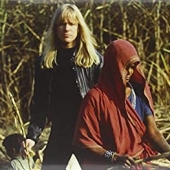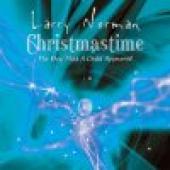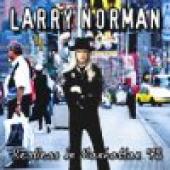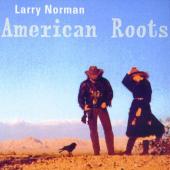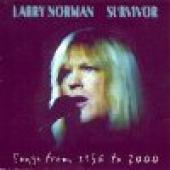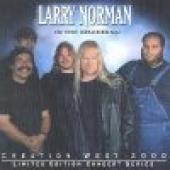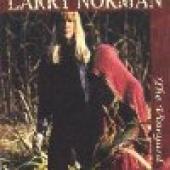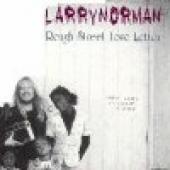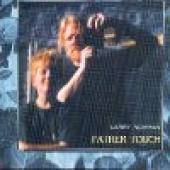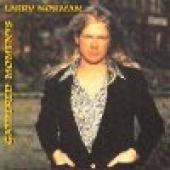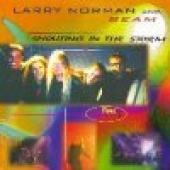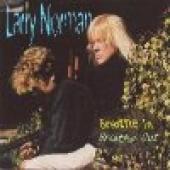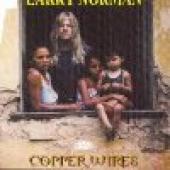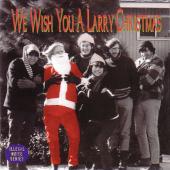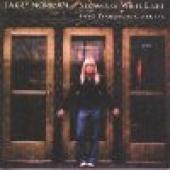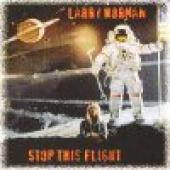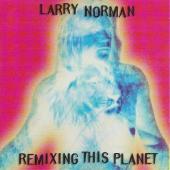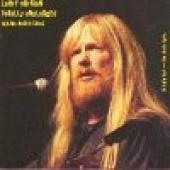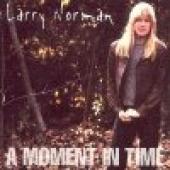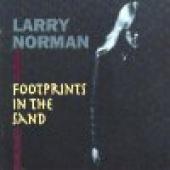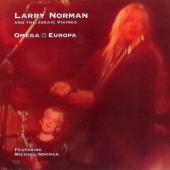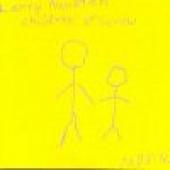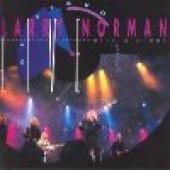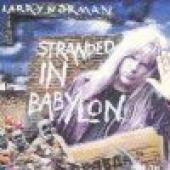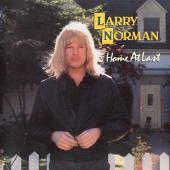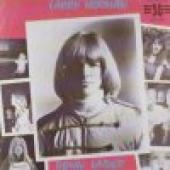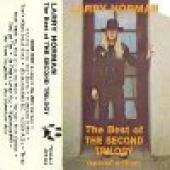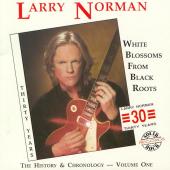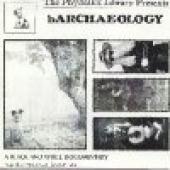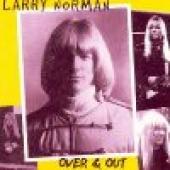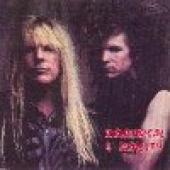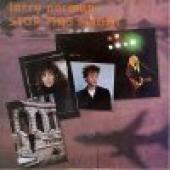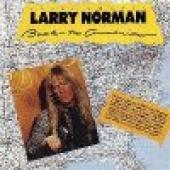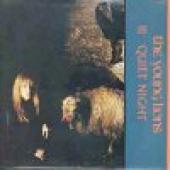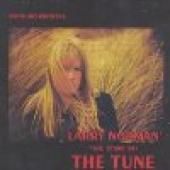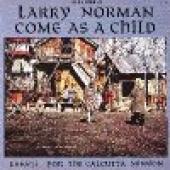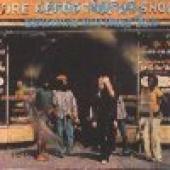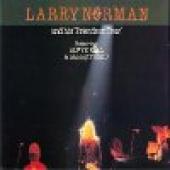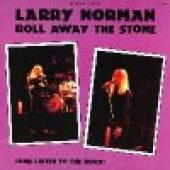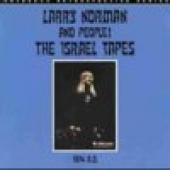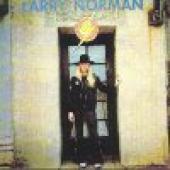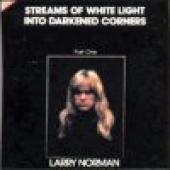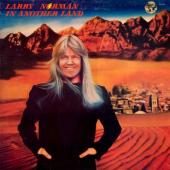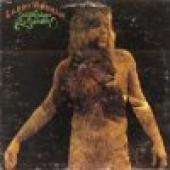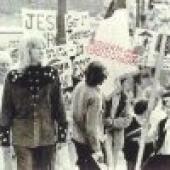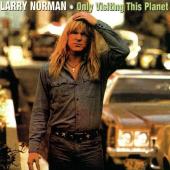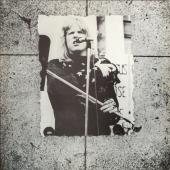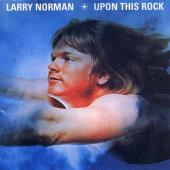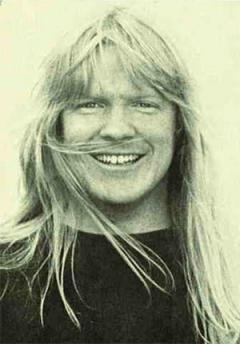Larry Norman is listed in the credits for the following albums:
| Year | Artist | Album | Role |
|---|---|---|---|
| 1971 | Pat Boone | Sings the New Songs of The Jesus People | Songwriter |
| 1971 | Randy Matthews | Wish We'd All Been Ready | Songwriter |
| 1971 | Randy Stonehill | Born Twice | Producer, Arranger, Piano, Organ, Mouth Claves, Harmony Vocals |
| 1972 | Larry Norman | Only Visiting This Planet | Producer, Arranger, Songwriter, Guitar, Piano, Vocals |
| 1973 | Imperials | Live | Songwriter |
| 1974 | David Diggs | Love Song Strings | Songwriter |
| 1974 | Dove | Dove II | Songwriter |
| 1975 | Nancy Honeytree | Evergreen | Songwriter |
| 1976 | Various Artists | Jubilation Too | |
| 1976 | Randy Stonehill | Welcome to Paradise | Producer, Arranger, Electric Guitar, Piano, Harmony Vocals |
| 1976 | Larry Norman | In Another Land | Producer, Song and String Arranger, Songwriter, Piano, Bass, Electric Rhythm Guitars, Spanish and Acoustic Guitars, Percussion, Harmonica, Vocals |
| 1976 | Scott Wesley Brown | I Am A Christian | Songwriter |
| 1977 | Salvation Air Force | Strangers In A Strange Land | Producer, Songwriter, Arrangements, Background Vocals |
| 1977 | Tom Howard | View from the Bridge | Producer, Arranger, Acoustic Guitar, Harmony Vocals |
| 1977 | Nancy Honeytree | Honeytree In Concert: Me and My Old Guitar | Songwriter |
| 1978 | Steve Camp | Sayin' it with Love | Songwriter |
| 1979 | Mark Heard | Appalachian Melody | Producer, Arranger, Vocals |
| 1980 | Randy Stonehill | The Sky is Falling | Producer, Arranger, Guitars, Bass, Piano, Marimba, Harmonica, Japanese Koto, Autoharp, Steel Drums, Background Vocals |
| 1980 | Steve Camp | Start Believin' | Songwriter |
| 1981 | Mark Heard | Stop the Dominoes | Background Vocals |
| 1982 | Sheila Walsh | Future Eyes | Producer, Engineer, Background Vocals |
| 1982 | Alwyn Wall | Invisible Warfare | Producer |
| 1982 | Mark Heard | Victims of the Age | Background Vocals |
| 1983 | Robin Crow | Finish Line | Songwriter |
| 1983 | Steve Camp | Only the Very Best | Songwriter |
| 1985 | The Cause | Do Something Now | Vocals, Choir |
| 1985 | Mark Heard | Greatest Hits Of Mark Heard | Background Vocals |
| 1985 | Mark Heard | Acoustic | Background Vocals |
| 1985 | Mylon LeFevre & Broken Heart | Sheep In Wolves Clothing | Background Vocals |
| 1986 | Geoff Moore | Over the Edge | Songwriter |
| 1987 | Kenny Marks | Make It Right | Songwriter |
| 1987 | Geoff Moore | The Distance | Songwriter, Duet Vocals |
| 1988 | Steve Camp | Justice | Songwriter |
| 1990 | One Bad Pig | Swine Flew | Songwriter |
| 1993 | Geoff Moore & The Distance | Evolution | Songwriter |
| 1993 | Mark Heard | Reflections of a Former Life | Background Vocals |
| 1995 | Geoff Moore | Familiar Stranger: The Early Works of Geoff Moore | Songwriter |
| 1995 | Code of Ethics | Arms Around the World | Songwriter |
| 1995 | Holy Soldier | Promise Man | Songwriter |
| 1996 | Michael Anderson | Love is the Hard Part | Songwriter |
| 2000 | Various Artists | When Worlds Collide: A Tribute to Daniel Amos | Producer, Vocals |
| 2000 | Mark Heard | Greatest Hits | Background Vocals |
| 2001 | Kevin Max | Stereotype Be | Harmonica, Background Vocals |
| 2001 | Tait | Empty | Songwriter |
| 2002 | Randy Stonehill | Edge of the World | Vocals |
Larry David Norman was an American Christian musician, singer, songwriter, record label owner, and record producer, who worked with Christian rock music. Since Norman's first professional release in 1967, more than 100 of his own albums have been released through such commercial record labels as Capitol, MGM, Verve, and his own independent labels: One Way Records, Solid Rock Records, Street Level Records, and Phydeaux Records.
In January 1973 Cashbox named Norman as one of the Best New Male Artists of the year. In 1989 Norman was awarded the Christian Artists' Society Lifetime Achievement Award. On 27 November 2001 Norman was inducted into the Gospel Music Association's Hall of Fame in a ceremony at the Ryman Auditorium and was voted into the CCM Hall of Fame in January 2004 by the readers of CCM magazine. In 2007 Norman was inducted into the San Jose Rocks Hall of Fame, both as a member of People!, and as a solo artist. At that time Norman reunited for a concert with People! In 2009 Norman was among those honored in a tribute segment of the Grammy Awards.
Early life
Larry Norman was born in Corpus Christi, Texas, the oldest son of Joe Hendrex "Joe Billy" Norman (9 December 1923 – 28 April 1999), who had served as a sergeant in the US Army Air Corps during World War II and worked at the Southern Pacific Railroad while studying to become a teacher, and his wife, Margaret Evelyn "Marge" Stout (born in 1925 in Nebraska). After Norman's birth, his parents joined the Southern Baptist church, which prohibited dancing, going to the cinema, and "almost everything that didn't occur inside [the Church]". Because of his religious convictions, Norman's father discouraged any interest in music by his children. Norman noted, "We were poor and I had no children's records in Texas. But I listened to my parents' radio whenever they turned it on. I developed an appreciation for swing music, big band arrangements and solo singers like Frank Sinatra and Bing Crosby". Also from an early age, he listened to the "blues and Negro spirituals on 78s his grandfather [Burl W. Stout] had collected". Other musical influences he later acknowledged included gospel singer Mahalia Jackson, Belgian jazz musician Django Reinhardt, American concert singer Paul Robeson, and Black comedian Bert Williams. Norman was strongly influenced also by classical music, jazz, blues music, and black gospel music, but "didn't like country and western ... because of the nasal, twangy vocals", or "some kinds of fast-paced jazz".
In 1950 Norman and his parents moved to San Francisco, California where the family attended a Black American Pentecostal church, later they attended the First Baptist Church at 22 Waller Street where Norman became a Christian in 1952 at the age of five. He began composing songs around this time. He stated, "I started to write music when I was four or five and didn't realize I was composing tonally because I was simply using the piano". He recalled: "When I was five I wrote a song about the rain because I loved the San Francisco drizzles, and later I wrote about a dog because I couldn't have one, and a clown because my uncle was a circus performer, and when I was eight I wrote a song ["Riding in the Saddle"] about a cowboy in the desert watching the stars at night and thinking about God because I often looked at the stars and tried to picture Heaven", inspired by seeing Roy Rogers and hearing Dale Evans give her testimony at the civic auditorium. Among his earliest songs was "Lonely Boy" (1956), "The Man From Galilee" (1956) "inspired by Sunday School stories", the unreleased "Bopping With My Girl"; "My Feet are on the Rock" (1958), "The Thanksgiving Song" (1959); "Country Church, Country People" (1959), was written for his grandmother Lena.
From 1956 Norman was fascinated with the music of Elvis Presley. According to Norman, his father banned him from listening to rock and roll music on the radio. Norman frequently accompanied his father on Christian missions to prisons and hospitals. In 1959, he performed on Ted Mack's syndicated CBS television show The Original Amateur Hour. In 1960 his father accepted a teaching job in San José, California. The family lived in Campbell, California, Later, while a junior at Campbell High School, he was the youngest person voted into the Edwin Markham Poetry Society, and won first place in the Society's student poetry contest. Norman won an academic scholarship to major in English at San Jose State College. By the fall of 1965 Norman left the family home and rented an apartment in Downtown San Jose. After one semester, he "flunked out of college and lost [his] scholarship".
Back Country Seven (1964-1965)
While still a high school student, Norman formed a group called The Back Country Seven, which included his sister, Nancy Jo; Mark A. Ebner, and high school friend, Gene Mason, who was later to be (alongside Norman) one of the lead singers of People!. The Back Country Seven played at hootenannies held at Campbell High and throughout San José. After graduating from high school, Norman became involved in the local rock music scene in San José, opening for both The Doors and Jimi Hendrix.
People! (1965–1968)
In 1966 Norman opened a concert for People! at the Asilomar Conference Grounds in Pacific Grove, California. Norman became the band's principal songwriter, sharing lead vocals with Gene M. Mason. Capitol Records signed People! to a record deal at the beginning of 1966. As Norman was legally underage, he required parental permission and court approval to sign.
People! performed about 200 concerts a year, appearing with Van Morrison and Them, The Animals, The Dave Clark Five, Paul Revere & the Raiders, The Doors, The Who, Janis Joplin, Jimi Hendrix, Moby Grape, and San Jose bands Syndicate of Sound, and Count Five.
In 1967 Capitol released People!'s first single "Organ Grinder/Riding High", with both songs co-written by Norman and Mason, and produced by their manager, Mikel Hunter "Captain Mikey" Herrington. It failed to chart. In 1968 Capitol released People!'s second single, also produced by Captain Mikey, an extended cover version of The Zombies' non-chart song "I Love You", backed by "Somebody Tell Me My Name". After extensive promotion by the band and its manager, and industry advertising by Capitol, including the creation of a promotional film that appeared on Dick Clark's American Bandstand, "I Love You" became a hit single, selling more than one million copies. It reached reaching a peak of #14 on the Billboard Hot 100, and #13 on the Cash Box Top 100 Singles Chart in June 1968. It became a #1 single in several markets, including Italy, Israel, and Japan. People! continued to tour extensively, appearing three times on Dick Clark's American Bandstand, and also on Johnny Carson's Tonight Show.
Despite the success of "I Love You", and despite favorable reviews, the subsequent album, named after their hit single and released in July 1968, only reached No. 138 on the Billboard charts. In August 1968 Capitol released People!'s third single "Apple Cider", backed with "Ashes of Me", but it failed to chart.
By the time the I Love You album was released and the band undertook its first major tour of the USA in the summer of 1968, Norman had left People!. Norman and Mason reunited in 1974 for a benefit concert for Israel at UCLA, later released in 1980 as the live album Larry Norman and People!—The Israel Tapes—1974 A.D. Norman, Fridkin, and Mason came together in August 2006 for a People! reunion concert in the G. Herbert Smith Auditorium on the Willamette University campus in Salem, Oregon.
Hollywood street ministry (1968–1969)
Soon after Norman left People!, he had "a powerful spiritual encounter that threw him into a frenzy of indecision about his life [and] for the first time in his life, he received what he understood to be the Holy Spirit". Norman moved back home to live with his parents, with no plans for his future. In answer to his father's inquiry, Norman responded: "My plans? Oh, I've got great plans. I'm going to sit down in the middle of my life and I'm not moving until God comes and gets me". Norman was offered a position with Youth For Christ, and a week later was invited by Herb Hendler to come to Hollywood to write musicals for Capitol Records. Norman recalled in 2007 that he "just prayed and prayed and prayed. And I had no peace about joining YFC. And a lot of peace about Hollywood. But God was silent".
In July 1968, Norman moved to Los Angeles and rented "a tiny, one-room, flophouse apartment, with the rent paid on a monthly basis and no lease, water or electricity costs required" at Apartment 406 at 1140 North Gower Street, Hollywood.
In 1969 Norman auditioned for a role in the Los Angeles production of the rock musical Hair, which was playing at the Aquarius Theatre at 6230 Sunset Boulevard, and which was directed by Tom O'Horgan and produced by Michael Butler and the Smothers Brothers. As co-creators James Rado and Gerome Ragni and half of the cast were leaving the production to join the Acapulco production, Norman and his friend, Teddy Neeley, were offered the replacement parts as George Berger and Claude Bukowski respectively. Norman indicated in a July 2007 interview, "When I got [to Los Angeles], there were auditions for Hair. And I thought I'm going to try out for Hair just to see if I have what it takes. Because maybe I'm just some lame person and I shouldn't be in music at all. So I tried out for Hair, and they gave me a callback and they said 'You're it. Come down on Saturday, there's a contract waiting for you to sign'. Believing God had something more important for him to do, and that "Jesus is the only personal, social and political answer for this generation or any other", Norman rejected the role because "of its glorification of drugs and free sex as the answers to today's problems". Norman decided "I couldn't do it when I found out what it was about. I just didn't agree with what it had to say. So I turned it down". Norman, who was broke, went home to his apartment, locked his guitar in the closet, and cried.
Years later Norman would recall that "It was a beautiful time of my life because it was just me and Jesus. And I had to depend on him, which I wanted to, because nothing else was happening. I wasn't performing, I'd given up music. 'Cause I wanted to be pure". In 2006 Norman recalled: "Even after one of my recordings had charted, I continued to live a spartan existence, slept on the floor, got my teeth fixed without a shot of Novocaine, chose to have no car and walked everywhere – trying to toughen myself for whatever vicissitudes the future might bring. I wasn't concerned with the ephemeral, wasn't really emotionally geared up for wide public acceptance; I was busy getting ready for the end of the world." According to Norman, about this time he wrote his most covered song, "I Wish We'd All Been Ready", "right after I gave up music completely so I could talk to people on the streets. I felt that rock music and love and peace was all a big lie". In a 2001 interview, Norman indicated: "The Bible says we should go into prisons and hospitals and witness to people and also bring them encouragement. ... I wanted to go out into the streets and witness to the people on Hollywood & Sunset Boulevard whether they were prostitutes or homosexuals or drug users and bring them into the kingdom. I remember getting a lot of irritated responses because they thought I wanted to turn the church into a half-way house. No I didn't – I wanted to turn the church into a house that brought people all the way through to the kingdom". Norman recalled: "One night I was singing on stage and Janis Joplin was sitting behind the front curtain watching the concert with a bottle of Southern Comfort in one hand and she was sipping whiskey from a paper cup. She was drunk and really unhappy. And every now and then, she would start yelling at me. I wrote "Why Don't You Look Into Jesus" about Janis. I felt really sad for her. I felt sad for all of them. They seemed so unhappy and so lost. I couldn't easily break through the haze of drugs by using music. I felt like the only time I had any real effectiveness was in personal conversations. At one point I even felt that maybe music was of no use at all. So I gave it up. All I did was street witness."
After Norman moved to Los Angeles in 1968, he "spent time sharing the gospel on the streets of Los Angeles",especially along Hollywood Boulevard. Norman described his street witnessing: "When I left my band in 1968 and moved to Los Angeles, I didn't feel awkward about witnessing anymore – I felt directed. I chose my ground and worked my beat. I walked up and down Hollywood Boulevard several times a day; at first alone, then with Richard Gerstle and later Sarah Finch, witnessing to businessmen and hippies, and to whomever the Spirit led me. I spent all of my Capitol Records' royalties starting a halfway house and buying clothes and food for new converts. Each Friday and Saturday I borrowed cars and drove almost 150 miles to pick up certain kids and take them to a church in a home in Santa Ana. Our meetings usually lasted five hours on Friday and eight hours on Sunday. After he moved to Los Angeles in 1968, Norman was associated initially with the First Presbyterian Church of Hollywood, California, and its Salt Company coffee shop outreach ministry, which operated in the upstairs loft of a converted apartment building located behind the Hollywood Presbyterian Church. Glenn D. Kittle believes that "rock-gospel music was born at the Salt Company Coffeehouse" by Norman. According to Don Williams, who founded the Salt Company coffeehouse in the summer of 1968, Norman "heard ‘The Agape,’ a hard rock Christian group, play songs about Jesus", which "convinced Larry that he could use his rock music to communicate the gospel".
After several months of musical inactivity, Norman began writing songs again. He recalled: "And months later the music started coming to me in my sleep. And I realized that somehow, perhaps because I was willing to give it up, the music had changed." One of those songs was "I've Searched All Around the World", which Norman says was "written in 1968 after walking up and down Hollywood Boulevard almost every day for a year talking to the runaways, pushers, bikers, prostitutes and homeless winos". According to Philip Cooney: "Norman's songs often contain a series of self-contained vignettes that (he hoped) would give the passers-by something to think about, or that might hook them in to hear more of the gospel message. The audience for these songs was not those already saved, it was those to whom church was a foreign language. He understood the ability of music to get behind people's gates, to draw them in with a beautiful melody and good words, to make people drop their defensive position to the gospel—even if for a short time—and allow God to speak to them in that moment....Norman's songs sought to have a relevance to life on the street, establishing a rapport with the musical and social culture around him, and leading his listeners to look to Jesus for the answers in their search for meaning."
Norman had a "passion for the pavement [and] he took his signature voice and his beat-up nylon-string guitar to festivals, coffee shops, and major theaters", including concerts at The Troubador and The Hollywood Bowl, "witnessing before and after the performances on the streets during the day and to the customers after the gigs." Norman appeared with the Salt Company band in a concert at the Vogue Theater in 1970.
In February 1992, Norman suffered a heart attack that resulted in permanent heart damage, leading to frequent hospitalizations in the years that followed. By early 1995, Norman had been hospitalized thirteen times and had a defibrillator implant, which enabled him to perform occasional small concerts. After a lengthy illness, Norman died on February 24, 2008, at the age of 60 at his home in Salem, Oregon.
Larry Norman. (2011, November 20). In Wikipedia, The Free Encyclopedia. Retrieved 13:36, November 30, 2011, from http://en.wikipedia.org/w/index.php?title=Larry_Norman&oldid=461541443

